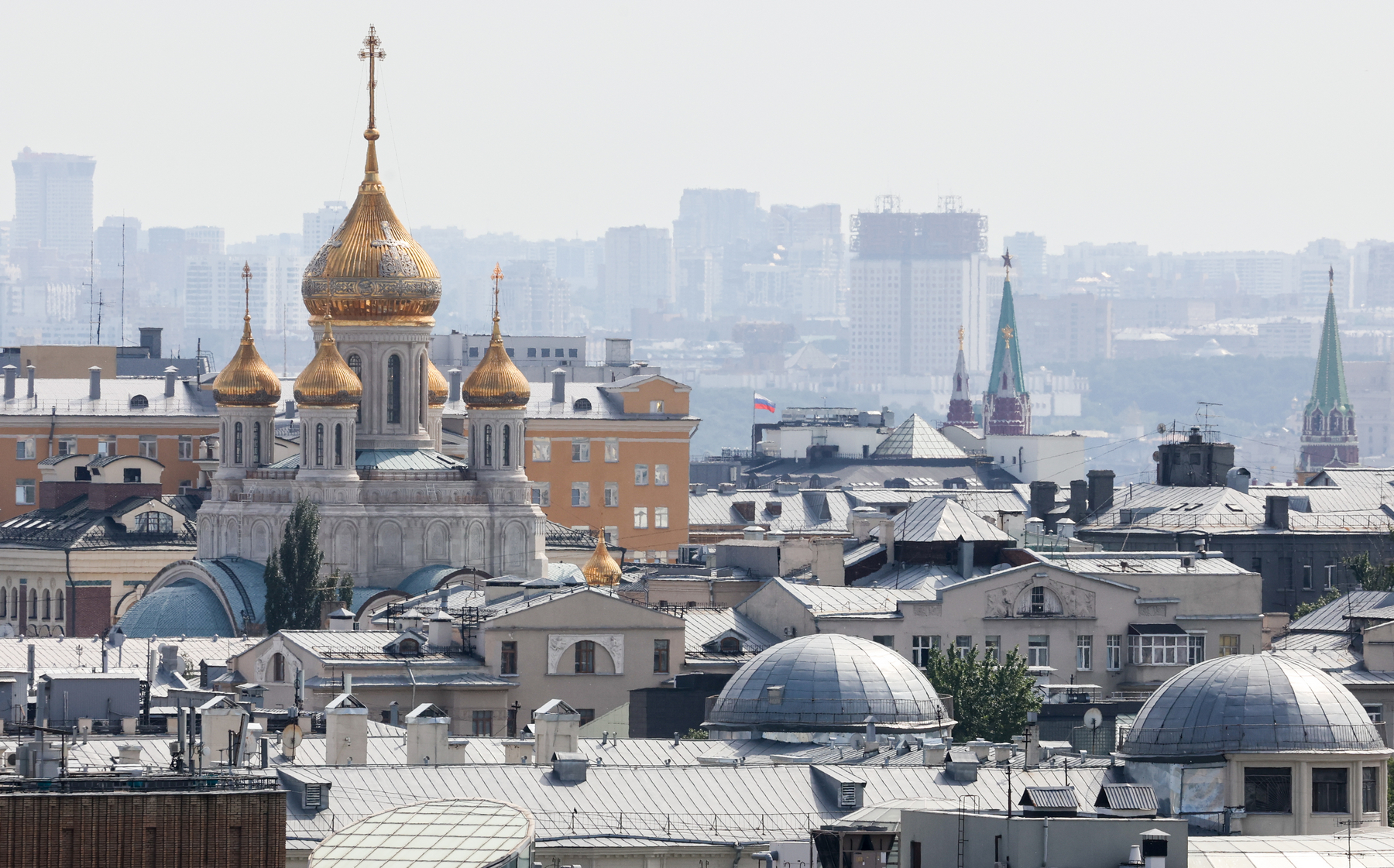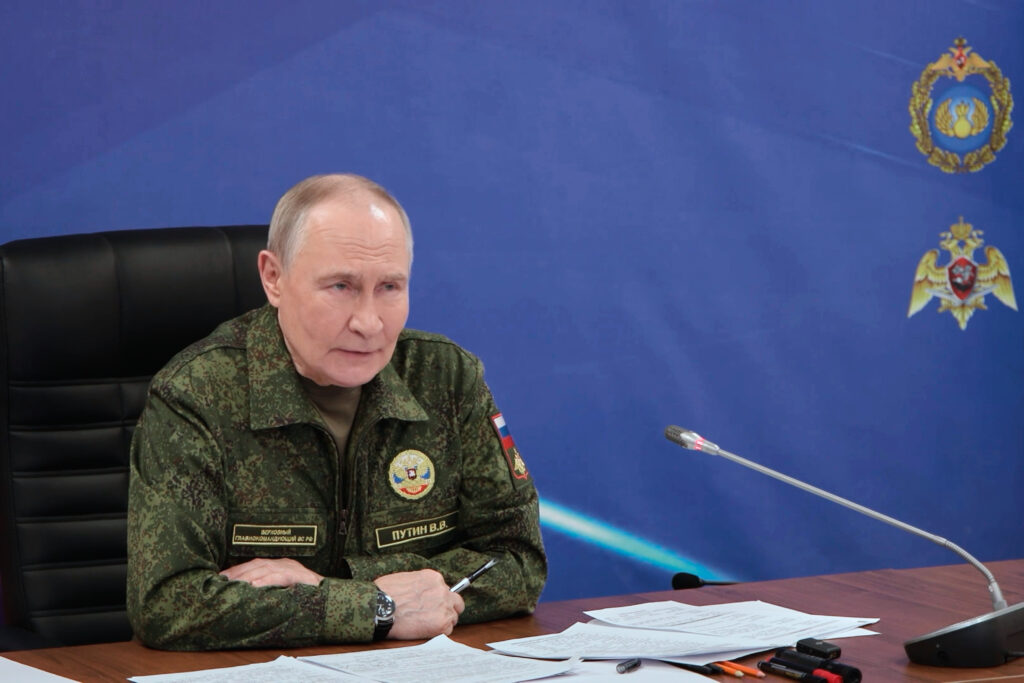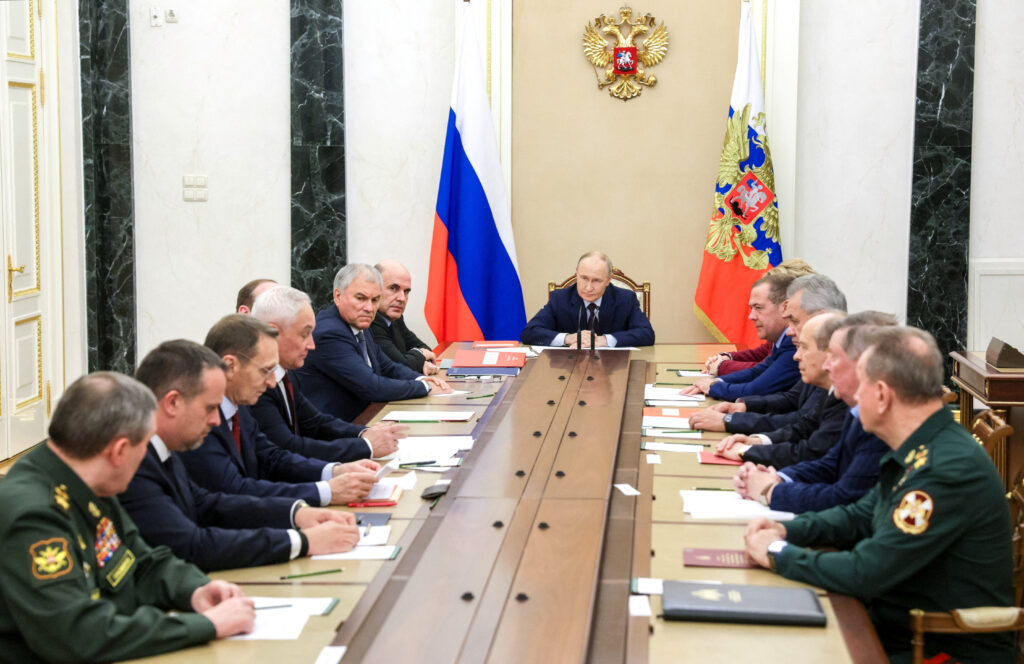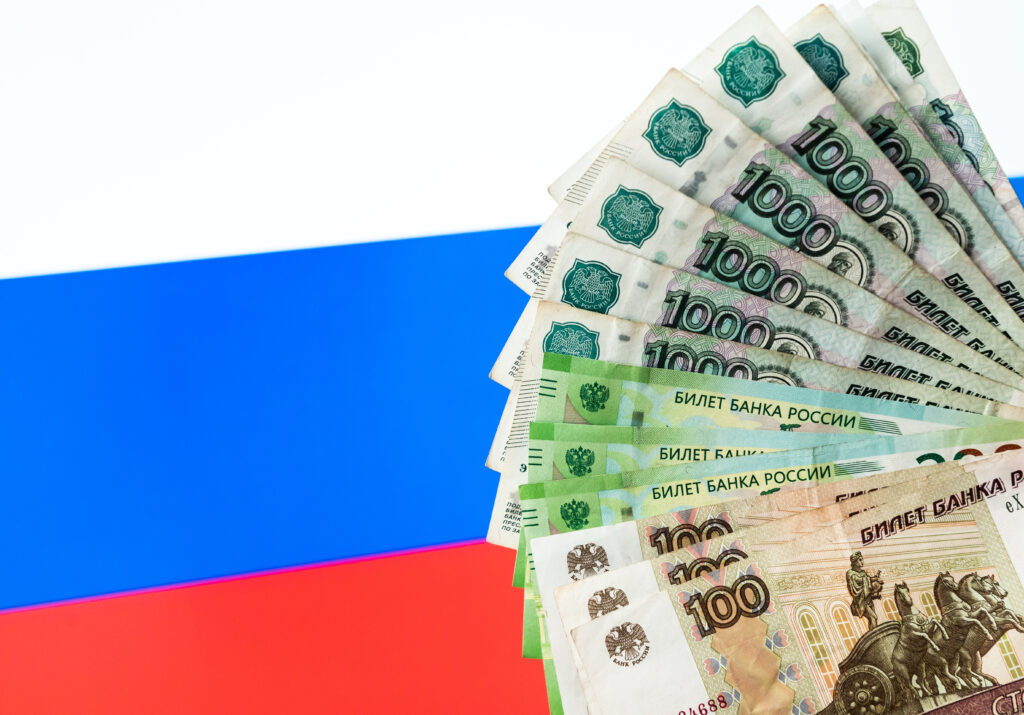The modern Russian regime has considerably shifted its ideological outlook since Vladimir Putin’s first days in office. Though opinions vary on exactly when the overarching change occurred, it became clear by the mid 2010s that we can best understand the regime as being guided by what we can broadly term ‘illiberalism.’
The concept is admittedly amorphous and often used more as a pejorative than a coherent ideational corpus. Even so, it remains a useful if broad way to describe major political developments of the last two decades. At the level of a working concept, illiberalism can be defined as “a strain of political culture that opposes philosophical liberalism, chafes against counter-hierarchical political institutions, and promotes a variety of collective, majoritarian, national-level, and culturally integrative approaches to contemporary political society.” This is similar to other definitions put forward recently by political scientist Marlene Laruelle, as well as sociologists Jasper Theodore Kauth and Desmond King, which leads us to a coherent descriptor of the Russian case, which mixes social conservatism, state patriotism, imperial nationalism, anti-Westernism, and myriad other discontents with the institutional and philosophical contours of 21st century liberal democracies.
In two recent academic articles published in the Journal of Illiberalism Studies and Problems of Post-Communism respectively, I illustrate some of the dynamics of Russia’s experience of illiberalism as it relates to political elites and institutions, as well as how illiberal policy developments in Russia have also taken hold in similar fashion across the wider region of post-Soviet Eurasia.
I argue that in order to understand illiberalism as it actually exists in Russia, scholars should consider moving beyond dominant instrumentalist approaches that see the Kremlin as a guiding force. Instead, I propose explaining the considerable advance of illiberalism from a wider lens, taking into account the role of domestic incentive structures, entrepreneurial elites in subordinate political institutions, and the place of genuine institutional bastions of illiberalism in state and society. Furthermore, we must understand Russia itself to be a hegemonic entrepreneur of illiberalism in the region, acting as an innovating source for developing illiberal policies which can then be taken and introduced as desired by other regional states.
Illiberalism in the Russian Context
Many current accounts of rising illiberalism in Russia explicitly or implicitly locate the causal root of this ideational development in the Kremlin itself. These arguments make variations on the claim that illiberalism is an instrumental choice by Putin and the leadership cadre of upper-tier elites around him. That is, Russia’s “conservative turn” in domestic politics or its pivot to confrontational anti-Westernism is a deliberate, intentional strategy to bolster internal stability against the urban-based political opposition and achieve foreign policy successes vis-à-vis the liberal West. In this way, agency lies firmly in the hands of the authoritarian leadership group and their efforts to safeguard their own rule.
There is great merit to these arguments, and at the highest levels it is surely correct. The regime, which resisted strong cultural illiberalism and promoted neoliberal reforms throughout the 2000s, made a series of elite-directed choices between the Munich Security Conference in 2007 and the annexation of Crimea in 2014 that has without a doubt set guiding markers of regime-promoted illiberalism from the top down. We would be wise to take in the lessons from this particular framing of the illiberal revanche in Russia over the last ten years.
Yet these explanations can be too all-encompassing and admit a level of explanatory insufficiency as we observe the ways in which illiberalism is promoted and illiberal policies are developed in practice. Zooming in on political and societal institutions inside Russia, we see a more complex picture: lower-tier elites in subordinate institutions such as the State Duma and the national broadcast media have had considerable flexibility and autonomy in developing policies and discursive narratives friendly to illiberalism. This does not even require us to note that most societies in the region are quite socially conservative and inclined towards illiberal moral-cultural appeals – although this is true as well – we can locate drivers of illiberalism among entrepreneurial elites and self-identified institutional interests on their own terms.
The Presidential Administration (PA) – often assumed to direct all or much of Russian domestic politics – engages quite heavily with these institutions, but in doing so has built out a set of incentive structures that have been used by ambitious lower-tier elites, such as Elena Mizulina or Dmitry Kiselov, to act as more than virtual players in the process of actively shaping what illiberalism in Russia ends up looking like. Although there is no such thing as full, agential autonomy in the lesser political institutions of Russia, it is also incorrect to assume everything occurs the way a puppeteer in the PA would have it, or that creative entrepreneurialism along illiberal lines does not emerge from lesser institutions far down the political food-chain.
Illiberalism has also been promoted by influential institutions outside of these subservient bodies – such as the Russian Orthodox Church, the Russian Armed Forces, and the symbolic head of the patronal presidency itself – whose very constitutive makeup encourages and supports forms of illiberalism. These bastions of illiberalism, which independently promote social conservatism, hierarchical and deferential patriotism, and national-level political unity regardless of particular regime ideologies, also act as important lobbyists, policy-promoters, and symbolic holdouts of illiberalism. A demand-side or voluntarist account of illiberalism has the benefit of being aware of drivers of illiberalism beyond the regime apex – among ambitious elites seeking to make a name for themselves and by institutions whose goals and world-views are substantively illiberal – without denying the role of political actors at all levels of the regime.
We can locate a (controversial) example in the widely discussed “homosexual propaganda” law passed in 2013, one of the earlier illustrations of this illiberal turn in Russian domestic policy. While often described in the Western press as a brainchild of Putin’s instrumentalist use of illiberalism to bolster his own popularity, the law’s development was rather strongly mediated and modified by both lower-tier elite politicking in the State Duma as well as promoted by the persistent lobbying and groundwork-laying of the Russian Orthodox Church in the regions. Indeed, variants on the bill were being workshopped in the Russian regions by Church-connected legislators since the early 2000s, and the ultimate move from the regional to the national stage was precipitated by the work of ambitious, media-savvy controversialists such as Vitaly Milonov in Saint-Petersburg. Regardless of whether society at large desired these bills, demand from regional actors and institutions certainly existed, and shaped its development in important ways.
When the bill first arrived in the Duma, its text was very similar to prior bills passed in the regions or submitted to the parliament and quietly tabled in the neoliberal period years before. This led to a further bout of illiberal policy entrepreneurship, as Mizulina, then a member of a loyalist opposition party and Chairwoman of the Duma Committee on Family Affairs, Women, and Children, used her institutional position to significantly modify the language in committee, going back and forth – including with contacts in the PA – before significantly moderating the legal limits and scope of the bill from its particularly extreme original wording.
Should we locate agency fully in the Duma or in earlier regional lobbying efforts? Of course not, as its passage was undoubtedly greenlit by the regime’s new signaling of an illiberal reorientation. If the higher rungs of the regime do not want a bill to pass, it is almost assuredly dropped. Yet that does not mean that the exact form and outcome are predetermined away from prying eyes, as even subordinate institutional maneuvering remains a very relevant feature of Russian authoritarian politics. Viewing the dynamics of Russian illiberalism through a ‘both-end’ analytical framework, allows for a fuller picture, which ultimately requires a more complex, demand-side and voluntarist account of the actual process of policymaking and institutional representation than a glib (if convincing at the high-level) instrumentalism can provide.
Illiberalism in the ‘Near-Abroad’ of the Eurasian Expanse
As observers have noted over the last decade, illiberalism has not been confined to Russia, but has also grown considerably across the region. Scholarly arguments about the diffusion of authoritarian political orders and illiberal policies remain contested, mired in difficult questions of causality, motivation, and mechanisms of mimetic learning, coercion, and imitation.
We can say for sure, however, that some level of illiberal policy diffusion has been taking place in Eurasia, even if its success has been less clear than the newsworthy attempts to introduce such laws. Edward Lemon and Oleg Antonov make a strong case for “legal harmonization” in the region, especially on security related matters as mediated through channels promoted by the Inter-Parliamentary Assembly of the CIS. Protest laws, civil society regulations, operational search regulations, and the legal outlines of extremism and terrorism legislation all follow the text of earlier Russian laws quite closely, if not often identically.
Similarly, in the previously mentioned case of moral-cultural items such as anti-LGBT legislation, the “copycat” nature of these bills – although often failing in the final attempt at passage due to international pressure and conflicting domestic disincentives – further underlines the role of Russia as an entrepreneurial “sender” state and illiberal innovator regime. Nearly identical bills on ‘homosexual propaganda’ showed up on the parliamentary docket in Kyrgyzstan and Kazakhstan in the mid-2010s, and was identical draft bills that never made it to a legislature were promoted by illiberal civil society actors in Georgia, Azerbaijan, Armenia, and elsewhere. This pattern has repeated through the rest of the decade and into the present day – as an example, a recently passed bill in Kyrgyzstan on disinformation and media regulations was noted by local observers to be broadly copied from an earlier Russian version.
The diffusion and replication of illiberalism across Eurasia also can be seen in an instrumental fashion – as a means to buttress existing regimes and signal friendliness to Russia – yet we must also account for internal domestic drivers. Influential religious authorities and illiberal civil society groups are active and important in their own context-specific ways throughout the region from Kyrgyzstan to Georgia, and reaction against foreign-sponsored and domestic liberal NGOs continues to rise as the hegemonic liberalism of Western states and international organizations wanes.
Taking Illiberalism in Eurasia Seriously
Research on illiberalism in the contemporary world is both a topic of considerable interest and still relatively understudied, especially outside of Europe. The framework highlighted here and elaborated in greater detail elsewhere are only partial accounts of certain patterns and dynamics that deserve a considerably closer and more nuanced look by academics and policy-makers alike. There remains much to commend for instrumentalist accounts of rising illiberalism, especially as it relates to issues of regime preservation and political stability in authoritarian regimes.
Combining leader-centric, intention-oriented explanations with demand-side and voluntarist arguments is a promising field of scholarly growth, however, and we should always be leery of explanations that ascribe perfect agency to authoritarian regimes when internal incentives and domestic institutional drivers of illiberalism also obviously play an important role.
To that end, it is vital that scholars take illiberalism seriously – not simply as a new political management option in the self-preservation toolkit of authoritarian regimes, but as a genuine element to the politics of states in the region and a natural development as we move further from a ‘post-Soviet’ Eurasia towards new generations of political activity.










